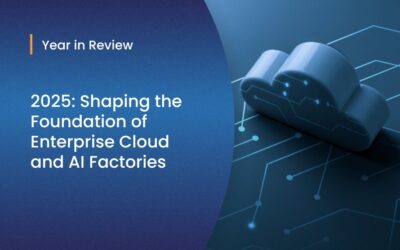Welcome to our newsletter! Dive into this edition to catch up on our latest updates, event highlights, future plans, and more.
Product
In August, our team worked hard on preparing version 7.2, which brings several improvements to the Enterprise Cloud. Many of these enhancements are designed to meet the needs of companies migrating from VMware. In addition, some selected features will be backported to the upcoming 7.0.1 release.
Some of the progress highlights include:
- Sunstone updates: Based on feedback from 7.0 users, the interface has been refined for a smoother look and feel, and the code has been further stabilized.
- Incremental backups: LVM Thin now supports incremental backups, making data protection faster and more efficient. Ceph drivers introduce backup flattening for improved reliability, and NetApp drivers will support incremental backups in 7.0.1.
- Veeam integration: Enhanced with incremental backup support, along with improved stability and performance.
- Enhanced local drivers: A new multi-tier cache system at both host and cluster level improves image transfer times in hybrid deployments and large datacenters.
- vTPM support: Completed and ready for the next release, adding enhanced security capabilities.
- OpenNebula Cluster API (CAPONE): Updated with a new storage interface (CSI) for storing pod volumes in OpenNebula datastores.
- Quota system improvements: Administrators can now set up PCI quotas for better resource control.
We’re also developing new features to better integrate OpenNebula with NVIDIA accelerated infrastructure—such as DPU BlueField-3 and B200 GPUs—and to provide an open platform for both inference and training. These efforts aim to enable the next generation of Sovereign AI Factories.
Stay tuned—we’ll be sharing more updates on the 7.2 roadmap very soon!
Innovation
OpenNebula Systems is proud to introduce the OpenNebula MCP Server, a new AI-powered co-pilot that transforms how organizations manage their cloud environments. By leveraging the Model Context Protocol (MCP)—a pioneering open standard that enables Large Language Models (LLMs) to interact with external systems and APIs—the OpenNebula MCP Server allows users to translate simple, natural language instructions into complex cloud operations. This advancement represents a significant step toward more intuitive, accessible, and intelligent infrastructure management. Read the full blog and watch the detailed screencast here.
OpenNebula unveiled a game-changing move: its latest ARM64 support in version 7.0 “Phoenix” enables a Raspberry Pi 4 to morph into a miniature, enterprise-grade private cloud. With just a Raspberry Pi (4 GB or 8 GB RAM), Ubuntu Server 24.04 ARM, KVM, and MiniONE installer, you can spin up lightweight virtual workloads through the Sunstone interface—no bulky hardware required. This clever setup levels the edge-computing playing field by enabling developers, educators, and remote deployments to test and deliver infrastructure where it really counts. Learn more.
📡 MESSAGE FROM THE ENGINEERING DECK
August went by really fast, but the OpenNebula team still managed to advance on the roadmap for OpenNebula 7.2. We’d like to thank our community for the excellent feedback received for our latest release, 7.0. Rest assured we're taking it into consideration, fixing the odd behaviours and improving the user experience based on your comments! Just a sneak peek on 7.2: want to migrate a VM to another storage backend? You are in luck :)Experiences
Discover what users are saying about OpenNebula on Gartner Peer Insights! This new 5-star review emphasizes OpenNebula’s simplicity and efficiency in managing cloud environments, with seamless deployment and scalability that deliver strong operational value.

Are you using OpenNebula? We’d love your feedback! Submit your review here, and as a thank-you, receive a gift card once it’s published.
We’re Now on Bluesky
In addition to our regular social media channels, you can now follow OpenNebula on Bluesky for the latest news and updates. Connect with us!
Outreach
Open Source Summit, Amsterdam, August 25-28
This month we took part in The Linux Foundation’s Open Source Summit, a great chance to engage with the global open source community and exchange ideas on the future of cloud and edge technologies. While there, we also spoke at the collocated Sylva Summit Europe 2025, sharing insights on how to build synergies between the EU Cloud Alliance, IPCEI-CIS, and Sylva. The talk highlighted the importance of collaboration in driving innovation, efficiency, and a unified vision for telco cloud and edge.
What’s coming in September (and October!)
After a short summer break from webinars, we’re back in action with a series of exciting events. Mark your calendars!
Webinars
We have two upcoming webinars and one training session.
- An Introduction to OpenNebula—September 10 at 5 PM CEST/11 AM EDT. Learn more and register here.
- Streamlining Cloud Management with the OpenNebula MCP Server—September 17 at 5 PM CEST/11 AM EDT. Learn more and register here.
- On-Demand Private 5G with Open vRAN and OpenNebula—September 24 at 5 PM CEST/11 AM EDT. Learn more and register here.
Time to Clock In!
Join us for our upcoming Office Hours Sessions on September 9. This one-hour session features a short 10-minute presentation from one of our experts, followed by a 50-minute open Q&A. This first session will dive into Virtual Networking in OpenNebula, where you’ll learn about supported networks and get the chance to bring your questions and exchange directly with our team. Learn more and register here.
Events
Iguane Solutions Tech Days 2025 # 3, Paris, September 16
We’re proud to partner with Dell Technologies and NVIDIA for this one-day event hosted by Iguane Solutions in Paris. It will bring together industry leaders and innovators to explore the next wave of sovereign AI solutions. Don’t miss this chance to grab your spot, seats are limited. Join us in Paris.
Open Source Community Day, Madrid, September 23-24
Organized by the Eclipse Foundation in collaboration with EUCloudEdgeIoT.eu, this event unites passionate contributors, EU-funded projects, and open source communities. We’ll be joining the discussions to collaborate on building a more open, competitive, and innovative European cloud and edge ecosystem. Register here.
MSP Global, Barcelona, October 22-23
We’re excited to take part in MSP Global, the leading platform for managed service providers and the IT channel industry. The Barcelona edition will gather top vendors, distributors, and providers to exchange insights, forge partnerships, and explore new business opportunities. Use our exclusive code wHmVcb57 for a FREE pass: claim your ticket.
OpenNebula Academy
A quick reminder that we offer certified training sessions for all skill levels. These sessions provide valuable hands-on experience to enhance your OpenNebula expertise and advance your career. Check out the next sessions and register here!
Awards and Recognitions
OpenNebula Systems has been named a finalist for the Information Technology Award at the ISG Software Innovation Awards 2025. Organized by ISG, a leading global technology research and advisory firm, the awards recognize innovative solutions that advance IT and business performance. Winners will be announced at the Awards Ceremony in Dallas, TX, on September 17.
Knowledge Base Articles
Exclusive Resources for OpenNebula Subscribers
This month’s spotlight is on a practical configuration guide:
How to Configure Local Storage Datastore Using Sunstone.
In many OpenNebula deployments, administrators combine different types of storage backends to balance performance, cost, and flexibility. One particularly useful setup involves leveraging the local disks of each host to run VMs, while also maintaining a dedicated storage area for the VM disk image repository.
This article provides a detailed walkthrough of the steps needed to properly configure both System and Image datastores with local storage using the Sunstone web interface. You’ll find clear, step-by-step instructions on:
- Creating a new System datastore with the Filesystem – SSH mode backend.
- Associating the datastore with a cluster.
- Configuring additional datastore attributes as needed.
- Setting up a new Image datastore, ensuring it’s compatible with the previously created System datastore.
By following this guide, administrators can quickly enable efficient use of local storage resources while ensuring compatibility between system and image datastores. This configuration can be especially beneficial for scenarios where minimizing external dependencies and maximizing host-local performance are key requirements.
Ready to join our customer community and unlock exclusive content?
Subscribe to Our Newsletter
Want to receive these updates in your inbox every month? Register using the form below.




0 Comments